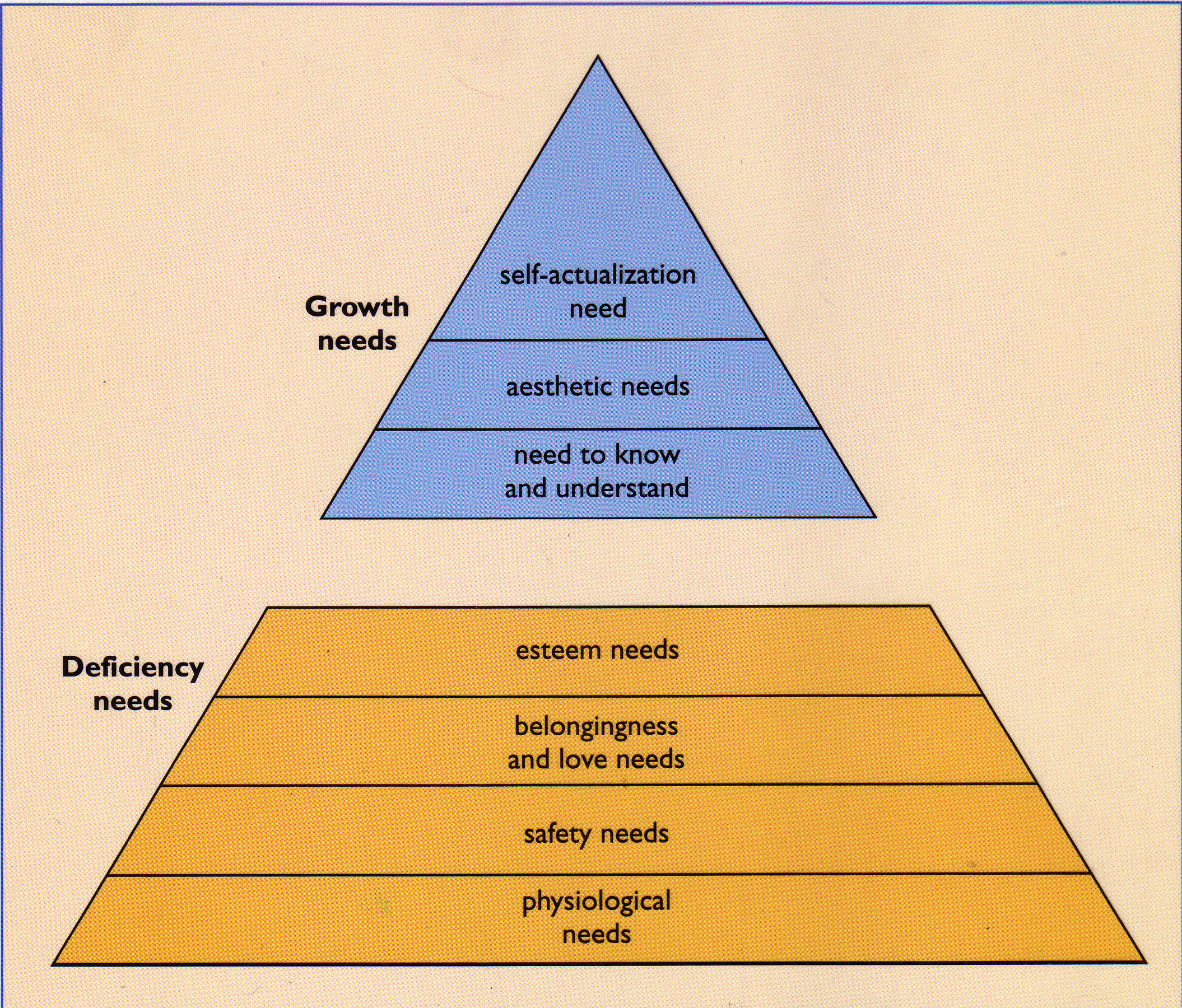|
Lecture Outline: Hierarchy of Needs

 1988,
Allyn & Bacon 1988,
Allyn & Bacon
Philosophical
Assumptions of Humanism
For Abraham Maslow, humans come with a
set of given set of innate truths. First among these assumptions is
that each individual human being has a fundamentally unique experience of
life. As much as we think we know how another person feels or what they are
thinking, we really can't know what it is like to be them. This
assumption has been coined as Phenomenology. Each person's view of
reality is unique to them, and should be valued by others for the inherent
humanity in this phenomenon. Another basic assumption from the
humanists point of view is that personal growth and development is an innate
trait, a genetic predisposition. From a humanistic point of view, we
are all born with the ability to grow and do what is best for us as living
creatures. Psychological problems arise, in this approach, from
obstructions put on the person in the form of other people valuing their own
personal points of view and imposing their values on the person.
Assumptions for the Hierarchy of
Needs
Maslow took a good deal of criticism for some of these assumptions
especially the assumption concerning the innate tendency towards personal
growth. The hierarchy is Maslow's attempt to explain how this innate
tendency might work. Secondly, the way the model works is that
satisfaction at a lower level of the pyramid naturally leads to the next
level of need. So as a person takes care of the lesser need, other
more sophisticated needs begin to emerge. Another assumption for the
hierarchy that needs addressing is the concept that lower level needs, the
more primitive the more pre-potent, must be satisfied before higher, more
refined needs, can be met. Lastly, is the assumption concerning the
idea of a "Self-Actualized" person. For Maslow, self-actualization is
living to one's fullest potential.
Just click on the upper or lower parts of the pyramid to
go to either deficiency needs or growth needs. |
![]()







